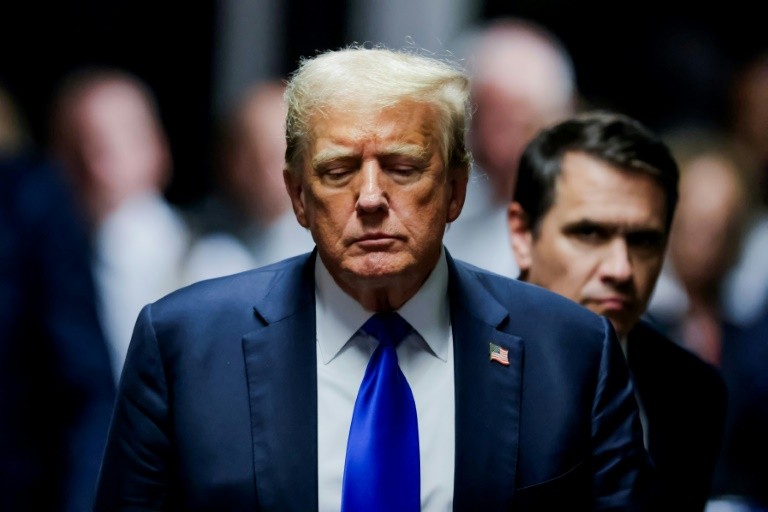
Just days after Donald Trump's election victory, the President-elect is awaiting another verdict – a ruling on his conviction in his hush money case. A New York judge is set to decide Tuesday whether to scrap his conviction because of a U.S. Supreme Court ruling on presidential immunity.
Judge Juan M. Merchan, who oversaw Trump's landmark trial, now faces the decision of whether to overturn the jury's verdict, call for a retrial, or dismiss the charges entirely. His ruling may also determine if the Trump will be sentenced as planned on November 26.
Trump has twice managed to postpone his sentencing on 34 felony counts of falsifying business records related to concealing a hush money payment to Stormy Daniels during the 2016 election.
"The odds of him going to jail are zero at this point," Mark Bederow, a New York City criminal defense lawyer and former Manhattan prosecutor, told USA TODAY. "He's not going to sweep subways and push papers and do community service either – it's just become untenable."
Trump has claimed that certain evidence presented to the jury during his trial, which concluded in late May, violates the presidential immunity ruling issued by the Supreme Court in July. Citing this, Trump said that his convictions should be overturned.
However, prosecutors argue that the Supreme Court's ruling does not justify overturning the jury's verdict. They claim that Trump's conviction pertains to unofficial acts—personal conduct that is not protected by presidential immunity.
If Merchan sides with Trump's motion, the charges would be dismissed, and the President-elect would avoid sentencing altogether. However, what happens if the motion is denied?
Trump's legal team is expected to request a delay in sentencing to allow time for an appeal. If this request is also rejected, his lawyers plan to challenge the immunity ruling in state appellate courts and potentially take the matter to the Supreme Court where they would request postpone sentencing until all appeals are resolved—a process that could extend for months.
Meanwhile, sentencing Trump as president-elect could ignite a significant political controversy.
"I do think that any judge can't ignore the 800-pound gorilla in the room, which is this guy was just resoundingly voted to be the next president," Bederow told USA Today. "If (Merchan) were to sentence him, this country is going to get torn apart even further at the seams."
If Merchan orders a new trial, it is unlikely to proceed while Trump is in office. Trump would likely argue that such a trial violates his constitutional due process rights, citing the deterioration of evidence and witness testimony over time.
"When defendants have that long of a gap between the first trial and the second trial, they will often argue that they can't be put on trial fairly four years later because witnesses' memories will have faded, some people may have died," Mitchell Epner, a New York litigator and former New Jersey federal prosecutor, reportedly said.
© 2025 HNGN, All rights reserved. Do not reproduce without permission.








